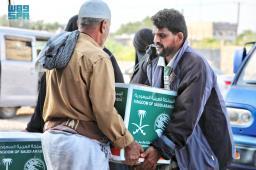Saudi Arabia charts an innovative path to water sustainability
https://arab.news/ygx9r
Water is often called the soul of life, as essential to humans as air. However, its availability is decreasing as global populations grow and climate challenges intensify.
Water sustainability refers to the efficient use of water to meet current and future needs, ensuring the welfare and development of societies worldwide.
In Saudi Arabia, water sustainability is not merely an aspiration, but a necessity for survival and growth, in a country marked by an arid climate and limited renewable water resources.
Saudi Arabia is among the world’s most water-scarce nations, a reality shaped by its desert-like environment, with no perennial rivers or lakes.
The Kingdom relies heavily on non-renewable groundwater, which is depleting rapidly, and desalination plants, which supply 50 percent of its water.
Notably, per capita water use in Saudi Arabia is 234 liters per day — almost double the global average. While desalination ensures access to fresh water, it comes at a high cost. The process is energy-intensive, environmentally taxing and generates brine that harms aquatic ecosystems.
Saudi Arabia is tackling its water challenges by embracing advanced technologies. The Kingdom leads in energy-efficient desalination, incorporating renewable energy sources. Notable projects like the solar-powered Al-Khafji Plant, launched by the Saudi Water Partnership Co., showcase this innovation.
Wastewater treatment and reuse are also key priorities, conserving water resources and reducing pollution. The Kingdom treats and reuses 21 percent of its wastewater, with plans to increase this to 70 percent by 2030.
In agriculture, which consumes 80 percent of the nation’s water, advanced methods like drip irrigation and hydroponics enhance water efficiency. These initiatives demonstrate Saudi Arabia’s commitment to resource optimization.
Vision 2030 serves as the cornerstone of the Kingdom’s water strategy. This comprehensive development plan focuses on diversifying the economy and ensuring sustainable resource use. It includes goals such as reducing water subsidies, increasing wastewater reuse and raising public awareness about conservation.
Key initiatives like the National Water Strategy 2030 focus on achieving water demand-supply balance, enhancing governance in the water sector and ensuring resource sustainability. Social marketing campaigns are also driving positive behavioral shifts toward water conservation.
Saudi Arabia is among the world’s most water-scarce nations, a reality shaped by its desert-like environment, with no perennial rivers or lakes.
Majed Nezar Al-Qatari
Saudi Arabia is heavily investing in sustainable water management through its ambitious megaprojects. The $500 billion futuristic city of NEOM will feature renewable energy-powered desalination and advanced water reuse technologies.
The Red Sea Project, a luxury tourism initiative, aims for zero wastewater discharge and high water recycling rates. Similarly, the Saudi Green Initiative promotes afforestation and sustainable irrigation to reduce water wastage. These efforts underscore the Kingdom’s commitment to environmental sustainability.
Recognizing that water security is a global concern, Saudi Arabia collaborates internationally with organizations like the Food and Agriculture Organization of the UN to share knowledge and technology. Regionally, the Kingdom works with the Gulf Cooperation Council to address shared challenges such as declining water tables and seawater intrusion.
Despite significant advancements, achieving water sustainability in Saudi Arabia remains challenging. Factors such as demographic shifts, infrastructure growth and climate change continue to drive up water demand. To secure a sustainable future, the Kingdom must further invest in research, development and public education on conservation measures.
Citizen engagement is essential. Small reductions in household water use, when widely adopted, can make a significant impact. By combining conservation efforts with advanced technologies, Saudi Arabia can ensure its water resources support economic growth and environmental preservation for years to come.
Saudi Arabia is charting a path for water innovation through technology, policy reforms and cooperation. The Kingdom’s efforts demonstrate its resolve to address critical needs and challenges. However, sustained commitment and global collaboration are essential to maintain progress.
As the world faces growing water scarcity, Saudi Arabia’s story can teach valuable lessons in innovation, perseverance and resilience. Achieving a sustainable water future requires collective effort — every drop counts.
• Majed Nezar Al-Qatari is a sustainability leader, ecological engineer and UN youth ambassador with experience in advancing environmental, social and corporate governance and sustainability goals in corporate businesses, nonprofit organizations and financial institutions.

























